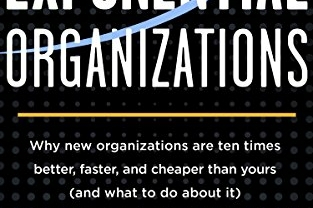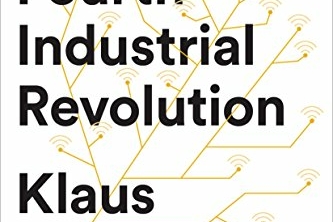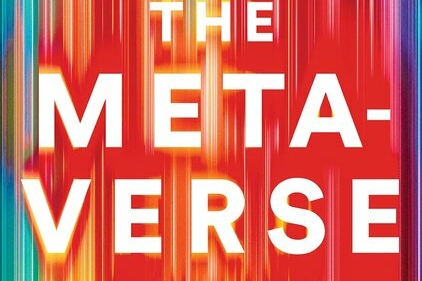In Life After Google: The Fall of Big Data and the Rise of the Blockchain Economy, American investor and co-founder of the Discovery Institute George Gilder describes a world with less reliance on search engine behemoth Google. We live in a Google-run world with a free search engine and a host of apps. Gilder notes that Google’s “aggregate and advertise” model is not a sustainable model long term.
The future lies with the “cryptocosm”—the new architecture of the blockchain and its derivatives.
The Google Worldview
Under Google’s guidance, the Internet is not only full of unwanted ads but fraught with bots and malware. Instead of putting power in the hands of individuals, it has become a porous cloud where all the money and power rise to the top.
Google is not just a company but a system of the world. And the Internet is cracking under the weight of this ideology. Its devotees uphold the flat-universe theory of materialism: the sufficiency of deterministic chemistry and mathematics. They believe the human mind is a suboptimal product of random evolutionary processes.
They believe in the possibility of a silicon brain. They believe that machines can “learn” in a way comparable to human learning, that consciousness is a relatively insignificant aspect of humanity, emergent from matter, and that imagination of true novelties is a delusion in a hermetic world of logic.
Alphabet, Google’s holding company, is now the second-largest company in the world. Measured by market capitalization, Apple is first. Joined by Amazon, and Microsoft, followed avidly by Facebook in seventh, the four form an increasingly feared global oligopoly.
Free as an imperative
Free is not by accident. If your business plan is to have access to the data of the entire world, then free is an imperative. At least for your “products.” For your advertisers, it’s another matter. What your advertisers are paying for is the enormous data and the insights gained by processing it, all of which is made possible by “free.
So the cascades of “free” began: free maps of phenomenal coverage and resolution, making Google master of mobile and local services; free YouTube videos of luminous quality and stunning diversity that are becoming a preferred vessel for Internet music as well; free email of elegant simplicity, with uncanny spam filters, facile attachments, and hundreds of gigabytes of storage, with links to free calendars and contact lists; free Android apps, free games, and free search of consummate speed and effectiveness; free, free, free, free vacation slideshows, free naked ladies, free moral uplift (“Do no evil”), free classics of world literature, and then free answers, tailored to your every whim by Google Mind.
Building the world’s largest database
As the years passed, Google digitized nearly all of the available books in the world (2005), the entire tapestry of the world’s languages and translations (2010), the topography of the planet (Google Maps and Google Earth, 2007), down to the surfaces and structures on individual streets (StreetView) and their traffic (Waze, 2016). It digitized even the physiognomies of the world’s faces in its digital facial recognition software (2006, now upgraded massively and part of Google Photos). With the capture of YouTube in 2006, Google commanded an explosively expanding digital rendition of much of the world’s imagery, music, and talk.
In 2021, Google segment revenue amounted to 256.7 billion U.S. dollars.
The Free Façade
But not only is “free” a lie, as we’ve seen, but a price of zero signifies a return to the barter system, a morass of incommensurable exchanges that the human race left behind in the Stone Age. You pay not with money but with your attention.
Above all, you pay in time. Time is what money measures and represents—what remains scarce when all else becomes abundant in the “zero marginal cost” economy. Money signals the real scarcities of the world concealed in the false infinities of free.
Time is what money measures and represents—what remains scarce when all else becomes abundant in the “zero marginal cost” economy.
Jonathan Taplin revealed in Move Fast and Break Things that Google owns five of the top six multibillion-user Web platforms and thirteen of the top fourteen commercial functions of the Net, and yet it collects less than 5 percent of its revenue from final customers.
Google Era
In the Google era, the prime rule of the Internet is “Communications first.” That means everything is free to be copied, moved, and mutated. While most of us welcome “free” on the understanding that it means “no charge,” what we really want is to get what we ordered rather than what the authority chooses to provide. In practice, “free” means insecure, amorphous, unmoored, and changeable from the top.
This communications-first principle served us well for many years. The Internet is a giant asynchronous replicator that communicates by copying. Regulating all property rights in the information economy are the copy-master kings, chiefly at Google.
The signs today are not promising. Google and Facebook currently handle close to 70 percent of all Internet communications, and Google’s internal links are larger in cross-section bandwidth than the entire Internet.
Search to Suggest
Google began as an Internet company crawling the World Wide Web with its miraculous search capabilities. Today, as Eric Schmidt declares, it is moving from “search” to “suggest,” using artificial intelligence to disintermediate the Web. Rather than being referred to a Web page by Google’s system, you are increasingly provided with Google’s own targeted response honed by its deep learning systems, its super-intelligent adaptation to your every whim.
Infrastructure Politics
The reason for inadequate investment is that, apart from alcohol and tobacco, telecom is the nation’s most heavily taxed and regulated industry, and it is capital-intensive and changing more rapidly than any other industry. Now with 5G and the blockchain, it is entering an era of new opportunities. Yet companies such as Google urge politicians to treat this turbulent arena as a public utility.
Cryptocosm
The premise of the cryptocurrency movement is the recognition that the old bureaucracies of socialism and crony-capitalism have failed. That is the problem, not the solution.
Blockchains, hashchains, blockstacks, smart contracts, token issues, and cryptocurrencies are new ways to address the evils of the Google Age: porous Internet security, unmoored money, regulatory overreach, network concentration, officious delays, and diminishing returns of big data. All of these problems derive from the hypertrophy of trusted third parties that need to be collapsed into simpler systems controlled by individual agents closer to the actual point of service
Some of these third parties are financial traders, search engines, social networks, or global retailers run by huge agglomerations of Siren Servers. Other examples of overreach are monetary systems run by central banks, parliaments, and treasuries wielding money as a magic wand rather than employing the measuring stick of gold. All need to be decentralized and brought back under the management of the private parties that understand the business constraints and the real investment opportunities.
The Google Era is coming to an end
The Google era is coming to an end because Google tries to cheat the constraints of economic scarcity and security by making its goods and services free. Google’s Free World is a way of brazenly defying the centrality of time in economics and reaching beyond the wallets of its customers directly to seize their time.
The Siren Servers of finance and artificial intelligence also attempt to cheat the scarcity of time by multiplying transactions and accelerating algorithms beyond the inexorable boundaries of the speed of light and the span of life. The uncanny success of quants in finance does not express a new and deeper understanding of the realities of companies and technologies. It merely moves to a time scale beyond actual transactions and valuation metrics in the world.
In the same way, so-called artificial super-intelligence does not succeed by a deeper understanding of the games of Go, chess, or Atari, to cite its most fashionable examples. Super AI succeeds by vastly accelerating the speed of game-playing, capturing much of the possibility space of a bounded and deterministic regime. Take it to an unbounded and non-deterministic realm, such as self-driving cars or general-purpose robots, and it will ultimately fail without new sensory systems and human guidance.
The New World Order
The Google system of the world focuses on the material environment rather than on human consciousness, on artificial intelligence rather than human intelligence, on machine learning rather than on human learning, on relativistic search rather than on the search for truth, on copying rather than on creating, on launching human hierarchies in a flat universe rather than on empowering human beings in a hierarchical universe. It seeks singularities in machines rather than in human minds.
The new system of the world must reverse these positions, exalting the singularities of creation: mind over matter, human consciousness over mechanism, real intelligence over mere algorithmic search, purposeful learning over mindless evolution, and truth over chance. A new system can open a heroic age of human accomplishment.
Propelling such advances will be a shift of focus from the fruits of computation to its roots in trust and security. Information theory always expounded reality from two sides. On one side it measures and enables communication, transmission, redundancy, and reliable copying across time and space. On the other side, it focuses on decoding and decrypting the hidden dimensions of reality shrouded in noise. On one side, it is a copying machine; on the other side, it is a truth machine, attempting to resolve the ground states of the world.
Need help with developing a digital strategy for your business? Get in touch.


